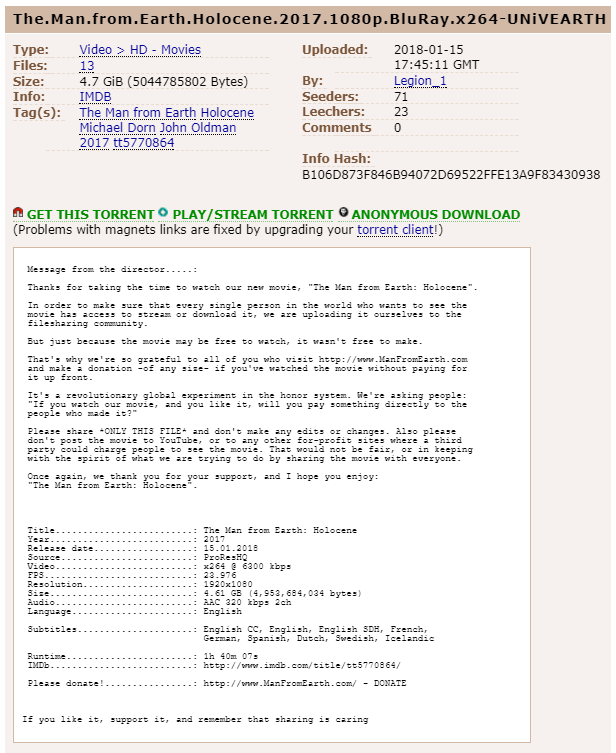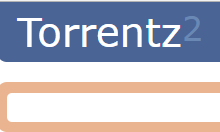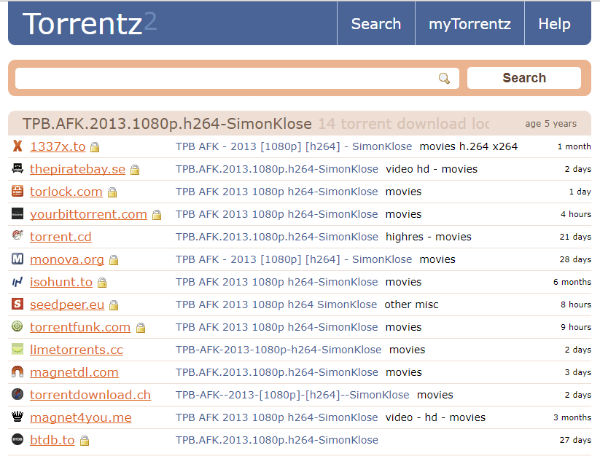
New generations should learn copyright moral and ethics, the idea was, and a few months later the first version of the new “Cracking Ideas” curriculum was made public.
In the years that followed new course material was added, published by the UK’s Intellectual Property Office (IPO) with support from the local copyright industry. The teaching material is aimed at a variety of ages, including those who have just started primary school.
Part of the education features a fictitious cartoon band called Nancy and the Meerkats. With help from their manager, they learn key copyright insights and this week several new videos were published, BBC points out.
The videos try to explain concepts including copyright, trademarks, and how people can protect the things they’ve created. Interestingly, the videos themselves use names of existing musicians, with puns such as Ed Shealing, Justin Beaver, and the evil Kitty Perry. Even Nancy and the Meerkats appears to be a play on the classic 1970s cartoon series Josie and the Pussycats, featuring a pop band of the same name.
The play on Ed Sheeran’s name is interesting, to say the least. While he’s one of the most popular artists today, he also mentioned in the past that file-sharing made his career.
“…illegal fire sharing was what made me. It was students in England going to university, sharing my songs with each other,” Sheeran said in an interview with CBS last year.
But that didn’t stop the IPO from using his likeness for their anti-file-sharing campaign. According to Catherine Davies of IPO’s education outreach department, knowledge about key intellectual property issues is a “life skill” nowadays.
“In today’s digital environment, even very young people are IP consumers, accessing online digital content independently and regularly,” she tells the BBC. “A basic understanding of IP and a respect for others’ IP rights is therefore a key life skill.”
While we doubt that these concepts will appeal to the average five-year-old, the course material does it best to simplify complex copyright issues. Perhaps that’s also where the danger lies.
The program is in part backed by copyright-reliant industries, who have a different view on the matter than many others. For example, a previously published video of Nancy and the Meerkats deals with the topic of file-sharing.
After the Meerkats found out that people were downloading their tracks from pirate sites and became outraged, their manager Big Joe explained that file-sharing is just the same as stealing a CD from a physical store.
“In a way, all those people who downloaded free copies are doing the same thing as walking out of the shop with a CD and forgetting to go the till,” he says.
“What these sites are doing is sometimes called piracy. It not only affects music but also videos, books, and movies.If someone owns the copyright to something, well, it is stealing. Simple as that,” Big Joe adds.
The Pirates of the Internet!
While we won’t go into the copying vs. stealing debate, it’s interesting that there is no mention of more liberal copyright licenses. There are thousands of artists who freely share their work after all, by adopting Creative Commons licenses for example. Downloading these tracks is certainly not stealing.
Jim Killock, director of the Open Rights Group, notes that the campaign is a bit extreme at points.
“Infringing copyright is a bad thing, but it is not the same as physical theft. Many children will guess that making a copy is not the same as making off with the local store’s chocolate bars,” he says.
“Children aren’t born bureaucrats, and they are surrounded by stupid rules made by stupid adults. Presumably, the IPO doesn’t want children to conclude that copyright is just another one, so they should be a bit more careful with how they explain things.”
Killock also stresses that children copy a lot of things in school, which would normally violate copyright. However, thanks to the educational exceptions they’re not getting in trouble. The IPO could pay more attention to these going forward.
Perhaps Nancy and the Meerkats could decide to release a free to share track in a future episode, for example, and encourage kids to use it for their own remixes, or other creative projects. Creativity and copyright are not all about restrictions, after all.
Source: TF, for the latest info on copyright, file-sharing, torrent sites and more. We also have VPN discounts, offers and coupons



 Like many other countries throughout Europe, Ireland is no stranger to pirate site blocking efforts.
Like many other countries throughout Europe, Ireland is no stranger to pirate site blocking efforts. The rising popularity of piracy streaming boxes has turned into Hollywood’s main piracy concern in recent months.
The rising popularity of piracy streaming boxes has turned into Hollywood’s main piracy concern in recent months.  Due to the public nature of BitTorrent transfers, it’s easy to see what a person behind a certain IP-address is downloading.
Due to the public nature of BitTorrent transfers, it’s easy to see what a person behind a certain IP-address is downloading.


 The Pirate Bay is arguably the most widely blocked website on the Internet.
The Pirate Bay is arguably the most widely blocked website on the Internet. When the original Torrentz site
When the original Torrentz site 